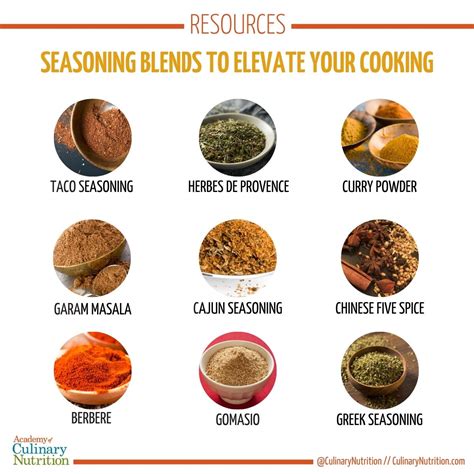Low Carb Fruits to Include In Your Diet
Fruits are nature’s bounty, packed with essential vitamins, minerals, and antioxidants. For those following a low carb lifestyle, selecting fruits lower in carbohydrates is key to maintaining a balanced diet. Here’s a curated list of low carb fruits that offer not only delicious flavours but also moderate carb content to support your health goals. Avocado... The post Low Carb Fruits to Include In Your Diet appeared first on CalorieTarget.

Fruits are nature’s bounty, packed with essential vitamins, minerals, and antioxidants. For those following a low carb lifestyle, selecting fruits lower in carbohydrates is key to maintaining a balanced diet. Here’s a curated list of low carb fruits that offer not only delicious flavours but also moderate carb content to support your health goals.
Avocado
Carb Content: Approximately 12 grams per cup of diced avocadoCalories: Around 240 calories per cup of diced avocadoWhile technically a fruit, avocados are a fantastic addition to a low carb diet. They are high in healthy fats, low in carbs, and loaded with nutrients. Avocados are also rich in potassium, which helps regulate blood pressure, and fibre, which promotes digestive health. Their creamy texture and mild flavour make them versatile for salads, smoothies, or even as a spread on toast.
Watermelon
Carb Content: Roughly 11 grams per cup of diced watermelonCalories: Approximately 45 calories per cup of diced watermelonSurprisingly, watermelon, with its high water content, is also relatively low in carbs. This refreshing fruit is hydrating and provides vitamins A and C, which are essential for skin health and immune function. Enjoy it on hot summer days as a hydrating snack or blend it into a refreshing beverage.
Cantaloupe
Carb Content: About 12 grams per cup of diced cantaloupeCalories: Approximately 55 calories per cup of diced cantaloupeAnother hydrating fruit, cantaloupe, is low in carbs and calories. It is rich in beta-carotene, which the body converts to vitamin A, supporting vision and immune health. This sweet and delicious melon can be enjoyed on its own, in fruit salads, or as a breakfast side.
Peaches
Carb Content: Around 10 grams per medium peachCalories: Approximately 40 calories per medium peachPeaches, with their juicy and flavourful profile, are relatively low in carbs. They provide vitamins A and C, along with fibre, which helps with digestion. Peaches can be enjoyed fresh, grilled, or added to desserts and smoothies for a naturally sweet touch.
Kiwi
Carb Content: About 11 grams per medium kiwiCalories: Approximately 50 calories per medium kiwiKiwi is not just a vitamin C powerhouse but also a low carb fruit. This fruit is rich in antioxidants, including vitamin E, which supports skin health. Its tangy and refreshing flavour makes it a perfect addition to fruit salads, yogurt, or eaten on its own.
Raspberries
Carb Content: Roughly 15 grams per cup of raspberriesCalories: Approximately 65 calories per cup of raspberriesRaspberries, in addition to their antioxidant properties, are rich in dietary fibre, promoting digestive health and helping to keep you feeling full for longer. Raspberries are also a good source of vitamin C and manganese, which supports bone health and wound healing. Enjoy them as a topping for yogurt, mixed into oatmeal, or simply as a flavourful snack.
Strawberries
Carb Content: Approximately 11 grams per cup of strawberriesCalories: Around 50 calories per cup of strawberriesStrawberries, apart from being rich in vitamin C, are low in carbs. They are also packed with antioxidants called polyphenols, which have been linked to various health benefits, including improved heart health and reduced inflammation. Strawberries are versatile and can be enjoyed fresh, added to salads, or blended into smoothies.
Blackberries
Carb Content: About 14 grams per cup of blackberriesCalories: Approximately 60 calories per cup of blackberriesBlackberries, like other berries, are low in carbs and packed with fibre. They are also rich in vitamin K, which is important for bone health and blood clotting. The antioxidants in blackberries may also help protect against certain chronic diseases. Add them to your morning cereal, mix them into yogurt, or enjoy them as a standalone snack.
Lemon
Carb Content: Approximately 5 grams per medium lemonCalories: Around 15 calories per medium lemonLemons, while not typically eaten alone, are incredibly low in carbs. They are rich in vitamin C and citric acid, which may help prevent kidney stones and improve digestive health. Lemons also add a refreshing zest to dishes and beverages without significantly impacting carb intake. Squeeze lemon juice over grilled meats, use it in salad dressings, or infuse water with lemon slices for a flavourful twist.
Incorporating these low carb fruits into your diet can add variety, flavour, and essential nutrients without compromising your carb goals. Whether eaten on their own, blended into smoothies, or paired with other foods, these fruits offer a delicious way to support a healthy, low carb lifestyle. Always remember to consider portion sizes to manage overall carb intake effectively.
The post Low Carb Fruits to Include In Your Diet appeared first on CalorieTarget.

 mainadmin
mainadmin 










